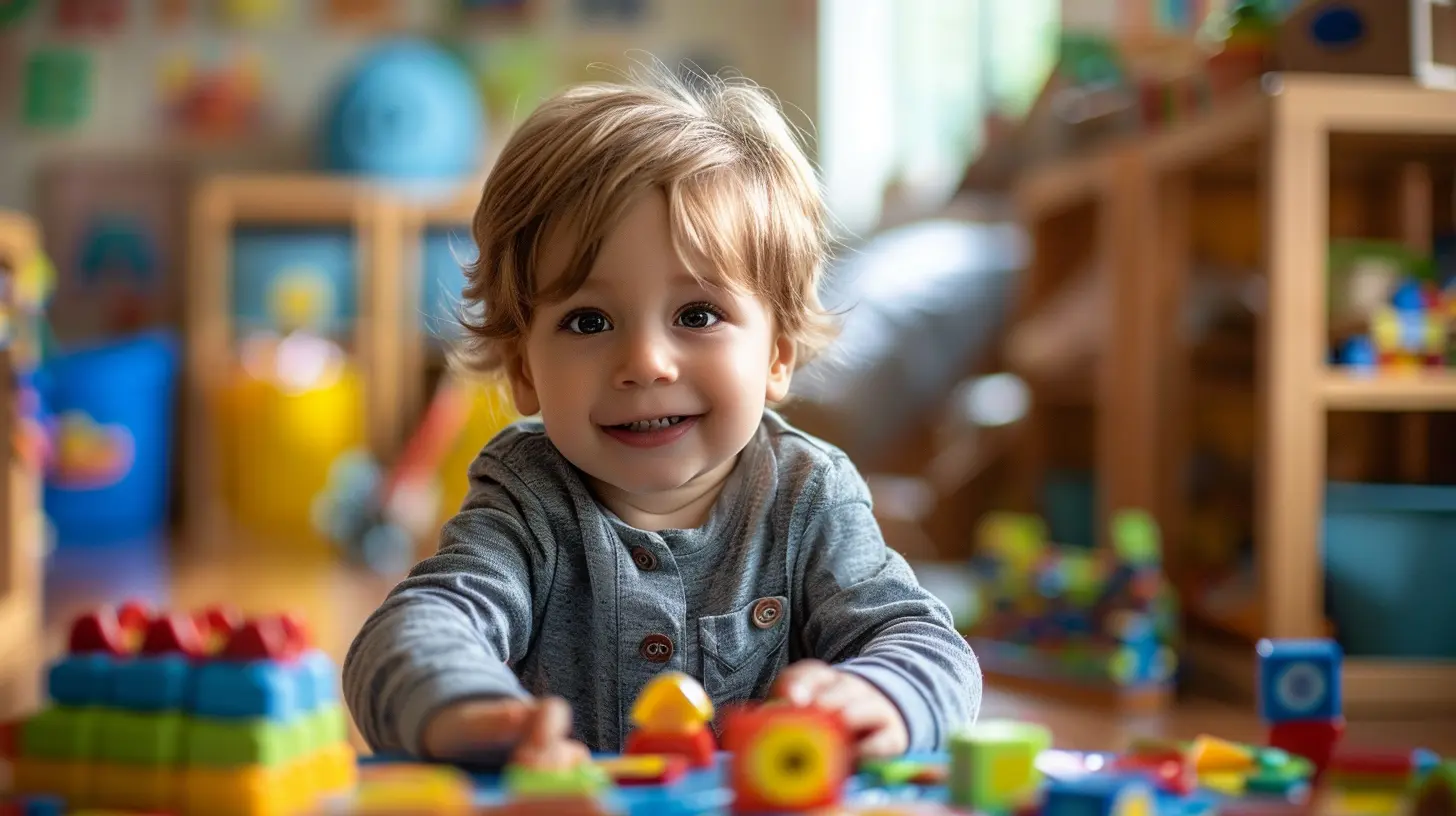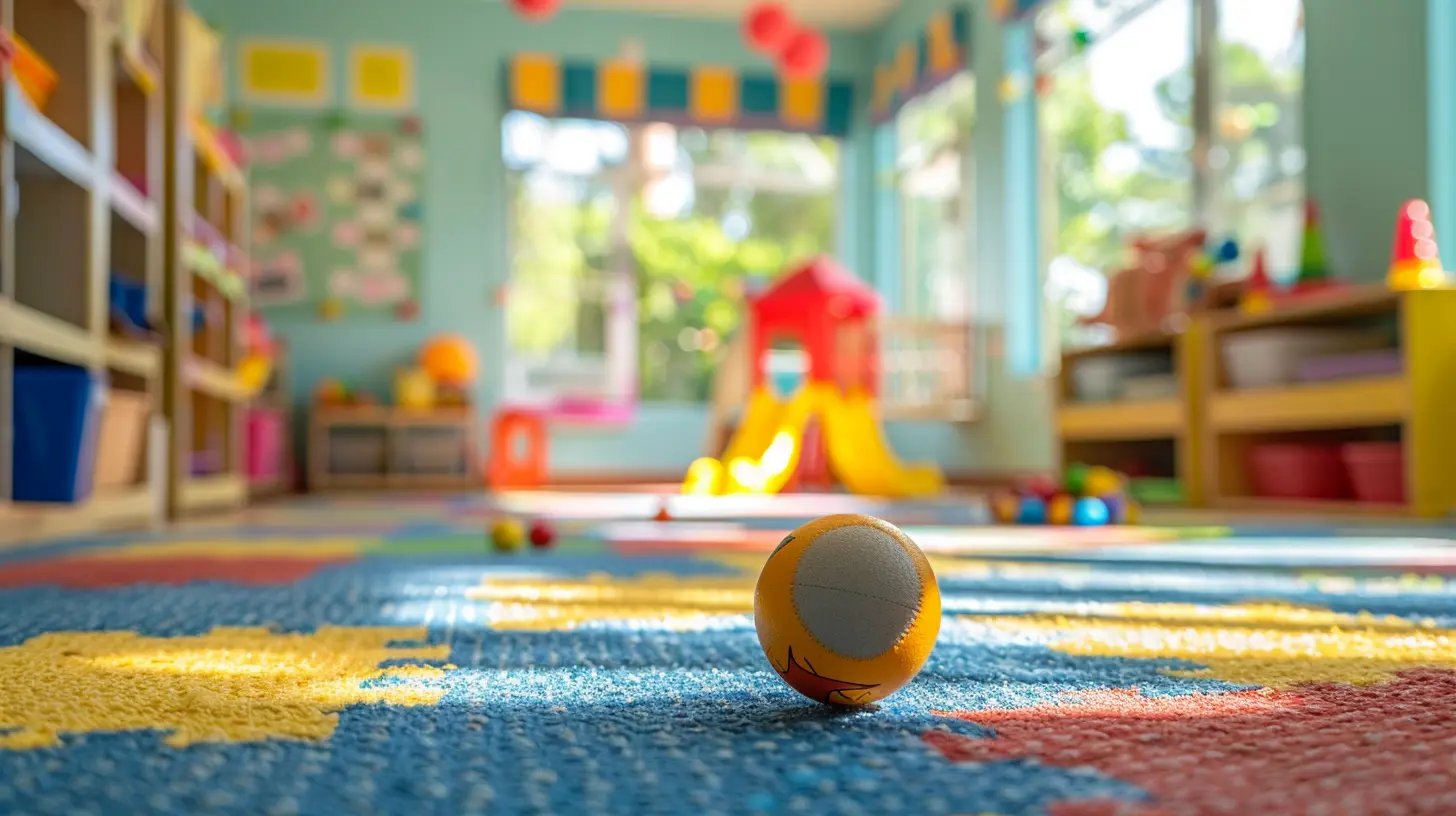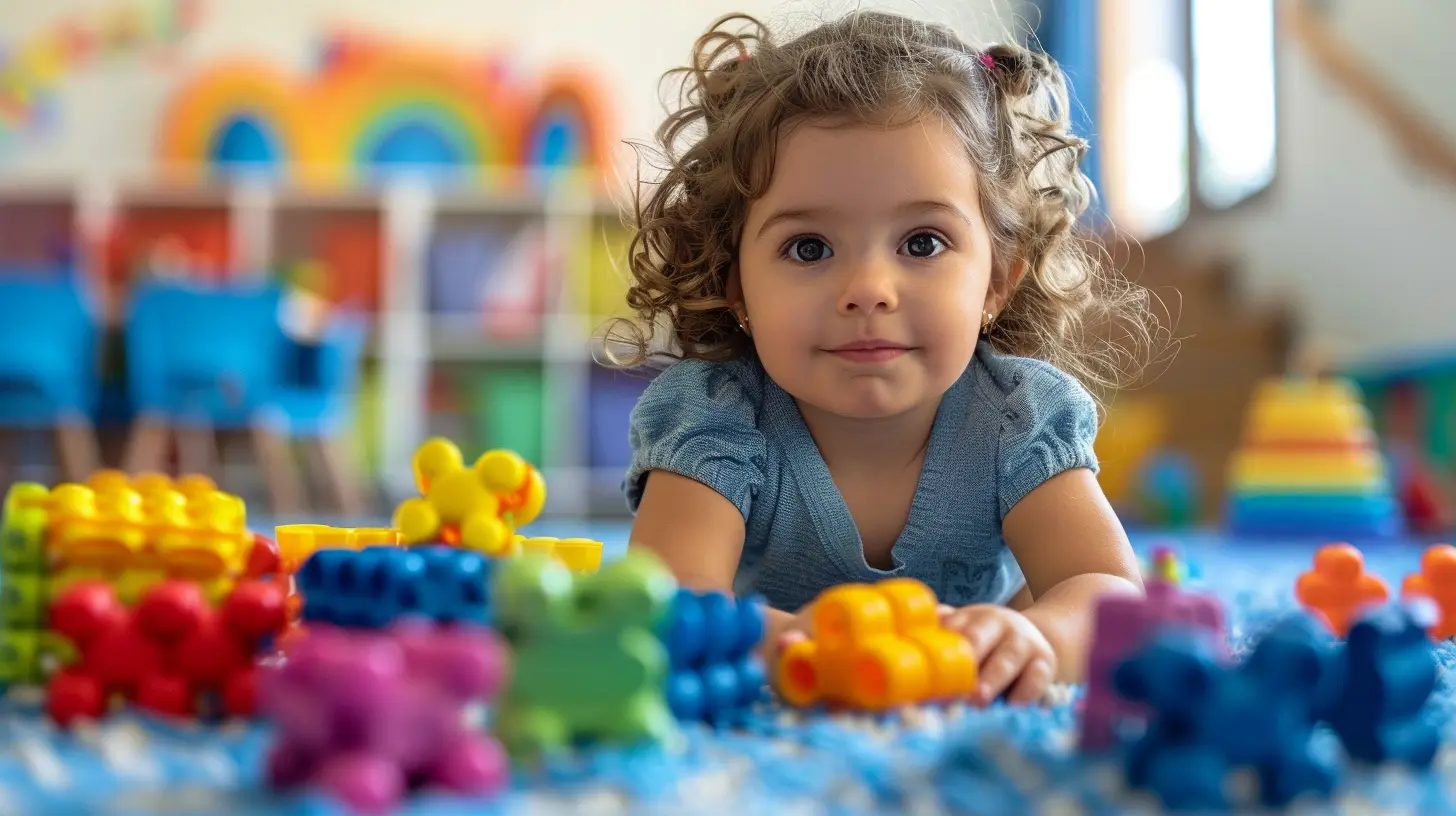How Daycare Environments Influence Cognitive Growth
3 May 2025
Childhood is a time of wonder, learning, and rapid development. As parents, we all want to give our little ones the best possible start in life. But did you know that your choice of daycare can have a lasting impact on your child's cognitive growth?
The right daycare environment can nurture a child's thinking skills, problem-solving abilities, and emotional intelligence. But how exactly does this happen? Let’s dive into the fascinating world of child development and uncover how daycare influences cognitive growth.

The Role of Early Childhood Experiences
The early years of a child’s life are critical for brain development. Research shows that 90% of a child’s brain develops before age five. During this time, kids are like sponges, soaking up information from their surroundings.A well-structured daycare environment provides enriching experiences that help shape brain connections, strengthen memory, and improve problem-solving skills. But not all daycare centers are created equal. The quality of care makes all the difference.

How High-Quality Daycare Boosts Cognitive Growth
1. Structured Learning Through Play
Children learn best when they’re having fun. That’s why play-based learning is a game-changer. In a high-quality daycare, structured play activities stimulate cognitive development.Think of puzzles, building blocks, and storytelling sessions—these activities are not just for fun. They teach problem-solving, enhance memory, and boost language skills. Play also encourages creativity and critical thinking, both essential for cognitive growth.
2. Social Interaction and Communication Skills
Ever notice how kids pick up words and behaviors so quickly when they’re around other children? That’s because social interaction is a powerful teacher.Daycare provides abundant opportunities for kids to communicate, share, and collaborate with others. Whether it’s taking turns in a game or chatting with friends during snack time, these interactions enhance language development and social intelligence.
3. Exposure to a Structured Routine
Routine is crucial for a child’s sense of security and cognitive development. In daycare, children follow a structured schedule—set times for meals, naps, play, and learning.Predictable routines help children develop time management skills and improve their ability to focus. Plus, knowing what comes next reduces anxiety and fosters a sense of stability, which allows kids to engage better in learning activities.
4. Stimulating Educational Materials
Daycare centers often provide access to books, toys, music, and art supplies that children might not have at home. Exposure to these resources stimulates intellectual curiosity and encourages exploration.Books, for example, introduce kids to new vocabulary and ideas. Music helps develop rhythm, memory, and cognitive coordination. Hands-on activities like painting and crafting improve fine motor skills and creativity.
5. Encouragement of Independence and Problem-Solving
In daycare, children learn to do things for themselves—putting on shoes, tidying up after playtime, or making choices about activities. These small acts of independence build confidence and encourage problem-solving skills.When kids navigate social situations, resolve conflicts, or figure out how to complete a task, they’re engaging in cognitive exercises that strengthen their ability to think critically and make decisions.

The Impact of Caregiver-Child Relationships
The bond between caregivers and children plays a crucial role in cognitive growth. A nurturing, responsive daycare provider can significantly influence a child's emotional and intellectual development.1. Emotional Security Enhances Learning
Children learn best when they feel safe and loved. A warm, caring daycare environment fosters emotional security, which allows kids to explore and engage in learning without fear.A child who receives encouragement and positive reinforcement is more likely to take on challenges and develop resilience—two essential traits for lifelong learning.
2. Language Development Through Interaction
Caregivers who engage children in meaningful conversations help expand their vocabulary and comprehension skills. Asking open-ended questions, reading books together, and encouraging storytelling all play a role in developing language abilities.The more words a child hears and uses, the stronger their language and literacy skills become. This early advantage often translates into better academic performance later on.

The Long-Term Benefits of Quality Daycare
The benefits of a high-quality daycare extend beyond early childhood. Studies show that children who attend structured, stimulating daycare environments perform better in school, have stronger social skills, and exhibit greater emotional stability.1. Better Academic Performance
Children who develop strong cognitive and language skills in daycare are often better prepared for kindergarten and beyond. They enter school with a solid foundation that makes learning new concepts easier.2. Stronger Social and Emotional Skills
Daycare teaches children how to cooperate, share, and communicate effectively. These skills help them navigate friendships, group activities, and classroom interactions with confidence.3. Enhanced Executive Functioning
Executive functioning refers to skills like attention control, impulse regulation, and problem-solving. Daycare encourages the development of these skills, which are crucial for academic excellence and everyday life.Choosing the Right Daycare for Optimal Cognitive Growth
Not all daycare centers offer the same level of cognitive stimulation. Here are some key factors to consider when selecting a daycare for your child:1. Trained and Engaged Caregivers
Look for caregivers who are warm, responsive, and actively engage with children in conversations and activities. Their interactions play a significant role in cognitive and emotional development.2. A Structured Yet Flexible Curriculum
A good daycare balances structured learning with free play. Activities should include reading, storytelling, creative arts, puzzles, and outdoor play.3. Clean, Safe, and Stimulating Environment
The physical space should be clean, safe, and filled with age-appropriate learning materials. Bright, engaging classrooms with books, toys, and interactive elements enhance cognitive stimulation.4. Encouragement of Independence and Problem-Solving
Does the daycare encourage children to make choices, solve problems, and interact independently? These aspects are crucial for developing cognitive skills.5. Strong Communication with Parents
A quality daycare keeps parents informed about their child’s progress, shares updates on activities, and welcomes parental involvement. Open communication ensures that learning continues at home.
Final Thoughts
Daycare isn’t just a place for kids to spend their day—it’s a powerful environment that shapes their cognitive growth, social skills, and future learning abilities. When parents choose a high-quality daycare, they aren’t just ensuring their child is cared for; they’re investing in their lifelong development.So, if you’re considering daycare for your little one, take the time to find a nurturing, stimulating environment that supports their growing mind. After all, childhood is the foundation of everything that follows!
all images in this post were generated using AI tools
Category:
Cognitive DevelopmentAuthor:

Jenna Richardson
Discussion
rate this article
3 comments
Flora McVicker
In vibrant halls where laughter sways, young minds blossom in myriad ways. Daycare's embrace, a nurturing space, ignites the spark of childhood's grace.
May 9, 2025 at 4:00 PM

Jenna Richardson
Thank you for capturing the essence of daycare environments! They truly play a vital role in promoting cognitive development through play and social interaction.
Alexander McNeil
This article compellingly highlights the critical role daycare environments play in cognitive development. By examining factors such as social interaction, structured activities, and emotional support, it underscores how quality childcare can significantly enhance learning outcomes, shaping future academic and social success for children.
May 7, 2025 at 5:04 PM

Jenna Richardson
Thank you for your insightful comment! I’m glad you found the article highlights on the impact of daycare environments on cognitive development compelling.
Zadie McCune
This article provides valuable insights into the significant role daycare environments play in shaping cognitive development. Understanding these influences can guide caregivers and policymakers in creating supportive settings that foster children's growth and learning potential.
May 6, 2025 at 2:49 PM

Jenna Richardson
Thank you for your feedback! I'm glad you found the article helpful in highlighting the importance of daycare environments in cognitive development.



